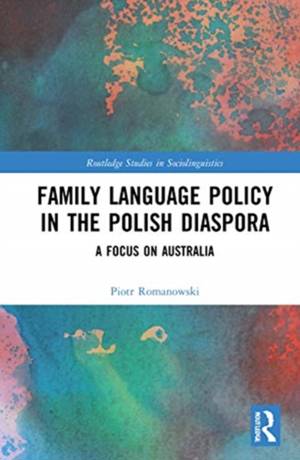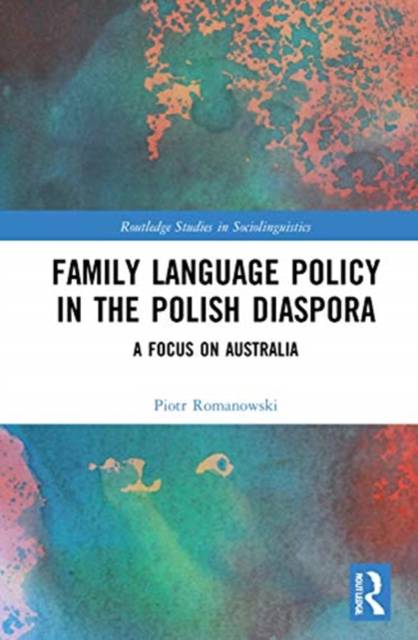
- Retrait gratuit dans votre magasin Club
- 7.000.000 titres dans notre catalogue
- Payer en toute sécurité
- Toujours un magasin près de chez vous
- Retrait gratuit dans votre magasin Club
- 7.000.0000 titres dans notre catalogue
- Payer en toute sécurité
- Toujours un magasin près de chez vous
Description
This book explores language practices, beliefs and management across a group of Polish immigrant families in Australia, drawing on these case studies as a lens through which to unpack dynamics of Family Language Policy (FLP) and their implications for future research on FLP.
The volume begins by outlining the historical context of Polish immigration in Australia, charting two key waves of Polish migration in the 20th century and the subsequent unfolding of issues around language and culture maintenance in these families. This discussion paves the way for exploring key themes of language socialization, language ideologies and heritage language maintenance and the affordances of FLP research in elucidating these dynamics at work in the lived experiences of a group of Polish immigrant families in Melbourne. The book highlights the importance of a triangulated approach, integrating qualitative and quantitative methods, in offering nuanced insights into parental approaches and children's experiences of a bilingual upbringing and the wider impact of FLP on transnational families.
Opening up avenues for future research on Family Language Policy and a better understanding of the language practices of specific communities in a globalised world, this book will be of interest to scholars in multilingualism, sociolinguistics and applied linguistics.
Spécifications
Parties prenantes
- Auteur(s) :
- Editeur:
Contenu
- Nombre de pages :
- 230
- Langue:
- Anglais
- Collection :
Caractéristiques
- EAN:
- 9780367706449
- Date de parution :
- 06-04-21
- Format:
- Livre relié
- Format numérique:
- Genaaid
- Dimensions :
- 152 mm x 229 mm
- Poids :
- 539 g

Les avis
Nous publions uniquement les avis qui respectent les conditions requises. Consultez nos conditions pour les avis.






